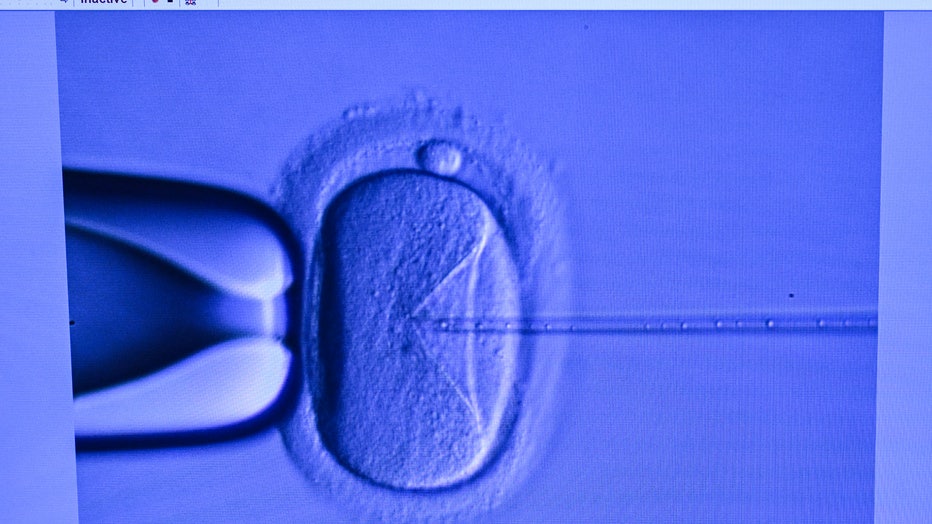IVF: Alabama high court's embryo ruling leaves some families worried about ripple effects
PHOENIX - The fallout continues after Alabama's Supreme Court rules that frozen embryos will now be considered as children.
The decision, issued in a pair of wrongful death cases brought by couples who had frozen embryos destroyed in an accident at a fertility clinic, brought a rush of warnings from advocates who said it would have sweeping and even "terrifying" implications for fertility treatments.
Already, officials with one hospital in Alabama have announced that they will halt In-Vitro Fertilization (IVF) treatments. Also, embryo shipping services have said they will stop transporting embryos to and from Alabama. Some doctors also say what's happening in Alabama could impact IVF treatment nationwide.
Doctor dispels IVF misconceptions
AL court ruling on embryos leaves some worried
The fallout continues after Alabama's Supreme Court rules that frozen embryos will now be considered as children. FOX 10's Kenzie Beach sat down with a doctor who dispelled some misconceptions surrounding in-vitro fertilization (IVF), as well as a woman who became pregnant as a result of a successful treatment.
On Feb. 23, we spoke with a doctor about IVF.
Dr. Vinay Gunnala says IVF can be a process with highs and lows.
"Oftentimes, hopefully, it ends with happy tears, which is an amazing day in the office," Dr. Gunnala says. "Tears will be in this office from a patient or employee everyday, and there is no question about that."
Everything in Dr. Gunnala's Phoenix office is done in house, from bloodwork to egg retrivals and transfers. He sees families who have been diagnosed with infertility, as well as woman who want to preserve their eggs in hopes of starting a family later in life, and he has been helping people grow their families for nearly a decade.
"It’s an investment of time, money and emotions," Dr. Gunnala says.
Dr. Gunnala says there are many alternative ways to grow a family if you are unable to do so naturally, including IVF. He also says, however, that there are many misconceptions on what that process looks like.
"The misconception too with IVF is that every embryo is a guarantee of a baby," said Dr. Gunnala, "The [maximum] chance of pregnancy of that developed embryo is only 50%. The why is because human reproduction is still inefficient."
Dr. Gunnala says a womens age, egg count and egg quality are the biggest factors.
Phoenix woman talks about her IVF experience

In a laboratory, an electron microscope is used to fertilize an egg cell. (Photo by Jens Kalaene/picture alliance via Getty Images)
We also sat down with Christin Pike, an Arizona woman who has been trying to get pregnant for 15 years.
"It took us up to five years to save and get enough money to be able to do that, our second round of IVF," Christin says.
At one point, Christin and she and her husband thought it wasn’t in the cards for them.
"To have a doctor come and tell my husband 'it's just not going to work for you. You need to consider an alternative method' was an absolute blow," Christin says.
The Pike family did three rounds of intra-uterine insemination and one round of IVF, each ending with a negative pregnancy test. They tried again, knowing they could face the same result.
"We have 65 from this round. Only five are usable for making babies," Christin says.
For the Pikes, it appears the fourth time was the charm.
"I am 23 weeks and five days pregnant," Christin says.
With the Alabama ruling, families like the Pikes worry it could impact their chances of continuing to grow their family.
"I am a little bit frightened about what it means when we define life at these different stages," Christin says.

